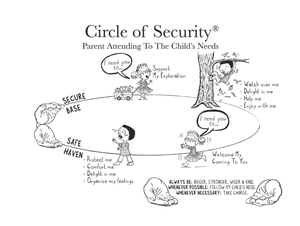Sleep Tip 8 - Understanding our Toddlers and Sleep

Toddlers have a lot going on! It’s a time of great brain growth as they actively learn new things every day. It is also a time when they can be quite sensitive to change, and as a result, can get overwhelmed and overtired and be really difficult to settle.
It is quite common for toddlers to wake during the night or to need additional comforting to go to sleep. In Western culture we are quick to want our babies to sleep during the night and many parents feel as if they have failed if their toddler is still requiring comfort or needing help to go back to sleep at night time. However, even many adults do not sleep through the night. We wake, toss and turn and hopefully fall back to sleep!
Babies and children are no different, where many need that additional comforting or reassurance by a parent or carer to go back to sleep by themselves.
Causes of toddler sleep disturbances?
Many parents remark that their toddler has never really been a ‘good’ sleeper, by that they mean the toddler, even as an infant, struggled to sleep, or woke frequently overnight even when they were not hungry.
Other toddlers may have a clearly identifiable catalyst to their wakefulness or sleep resistance, the most common triggers are; moving house, a new baby or being cared for by someone new as parents return to work.
Whatever the cause, a sensitive and responsive approach to addressing toddler sleep struggles means the toddlers experience can be respected while they are guided to a new way of drifting to sleep.
Toddlers thrive on understanding, so it’s best to keep explanations brief and clear. Lengthy discussion will be lost on them as they can only focus for short periods of time.
So how much sleep does a toddler need?
- Toddlers need between 11 and 14 hours of sleep in a 24-hour period.
- On average, a 12-month-old naps for about 2 hours twice a day.
- By about 18 months of age, some toddlers may drop one nap, or may have one which is longer and one which is shorter.
- By about 2 years of age, one 3-hour nap is quite normal, with a shorter nap occasionally.
- By about 3 years of age, one nap is normal. Sometimes toddlers can make it through the day without sleep at all but they will generally be very tired by the evening.
- Also Toddlers cannot always connect one cycle to the next. Sometimes they can drift back to sleep and other times they cannot. It is during these times that they need support to ease into the next sleep cycle.
T
oddlers usually drop their morning nap at around 15 to 18 months. If you notice that your toddler is consistently taking longer to fall asleep or waking up earlier during their morning nap, or is sleeping longer during their morning nap and resisting an afternoon nap – it may be time to make the transition.
The most successful way to make the transition is to push the morning nap a little later every couple of days. For example, try delaying it until around 11.00am for two or three days. Then push it until 11.30am for a few days, then to noon, and so on. Your ultimate goal is have your toddler asleep by about 12.30pm or 1.00pm at the latest.
Remember also that there are no bad or naughty toddlers, they are simply responding to the world around them in the best way they know how. They need us as carers to help and support them in a loving way, and to provide them as often as possible a little freedom to make their own decisions and complete tasks independently.
Need more help? Check out our Sleep Consultations [here] or our App Rockabub [here] or stay informed on our Facebook page
This article was written by Cindy Davenport, Clinical Director, MCHN, RN, Safe Sleep Space








